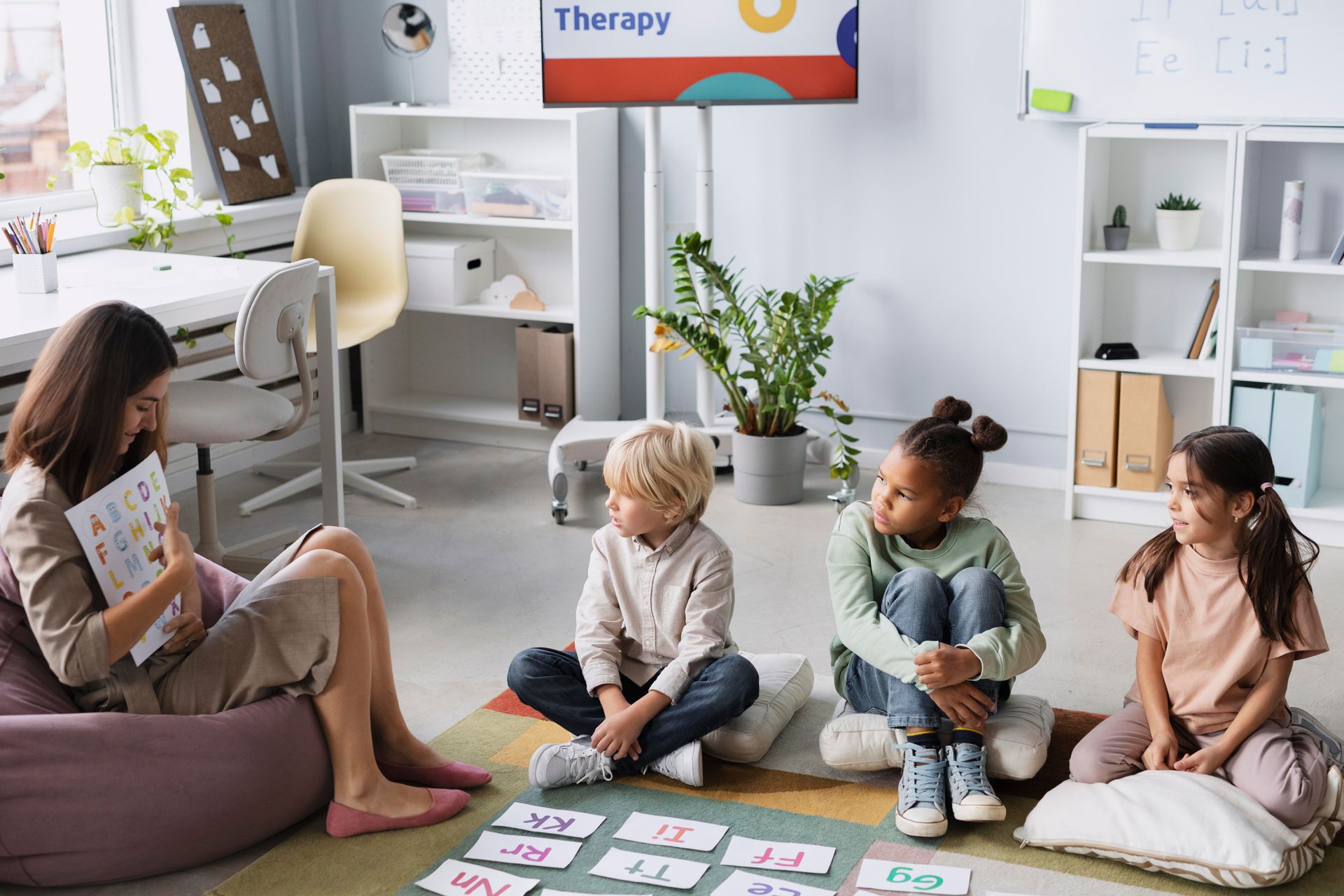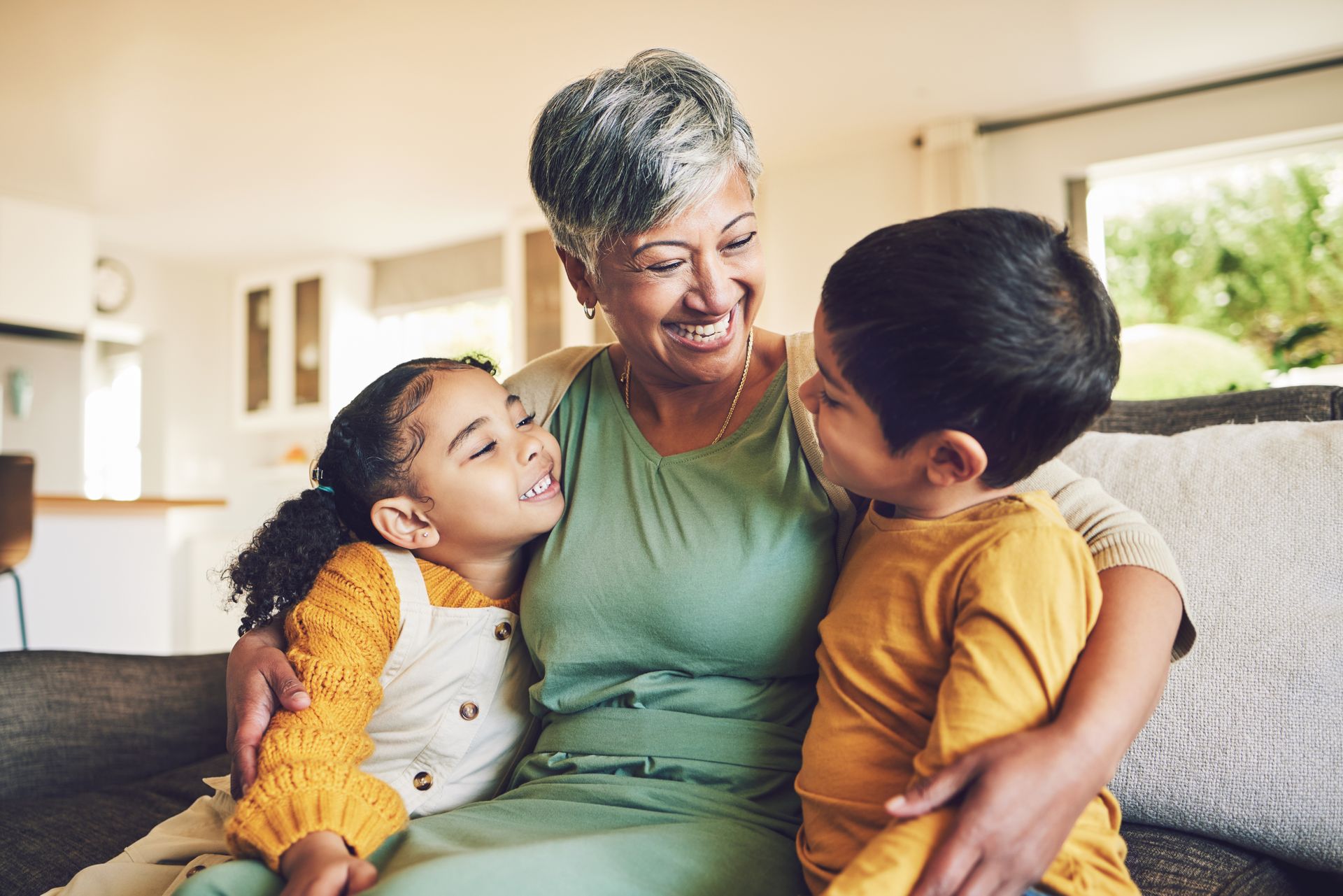Pediatric Psychiatry at Modern Psychiatry
Supporting Your Child's Mental Health Journey
Watching a child struggle with their mental health can be one of the most heartbreaking experiences as a caregiver. Maybe your once-happy child has become withdrawn and anxious, or your teenager is having angry outbursts that seem to come from nowhere. Perhaps you've noticed changes in their sleep, appetite, or school performance that have you worried.
You're not alone in this, and more importantly, you don't have to figure it out by yourself. At
Modern Psychiatry, we specialize in helping children and teenagers navigate mental health challenges with the support they need to thrive.
When to Seek Help for Your Child
Kids and teens go through a lot of changes as they grow, and it can be hard to know when normal developmental challenges cross the line into something that needs professional attention. Generally, if you notice significant changes in your child's behavior, mood, or functioning that last for several weeks and interfere with school, friendships, or family life, it's worth having a conversation with a mental health professional.
Some signs that might indicate your child could benefit from support include persistent sadness or worry that doesn't seem to match the situation, dramatic changes in behavior or personality, difficulty concentrating or paying attention that affects school performance, social withdrawal or loss of interest in activities they used to enjoy, frequent angry outbursts or extreme mood swings, changes in eating or sleeping patterns, or talk about feeling hopeless or wanting to hurt themselves.
Remember, seeking help early is always better than waiting to see if things improve on their own. Mental health challenges in children and teens are very treatable, and getting support sooner rather than later often leads to better outcomes.
Common Mental Health Challenges in Young People
Children and teenagers can experience many of the same mental health conditions as adults, but they often show up differently because kids are still developing emotionally and cognitively.
Anxiety disorders are very common in young people. Your child might have excessive worry about school, friends, or family, or they might develop specific fears or phobias. Some kids have panic attacks or refuse to go to school because of anxiety.
Depression in children and teens doesn't always look like sadness. You might see irritability, anger, or defiance instead. Some kids become withdrawn and lose interest in friends and activities, while others might act out behaviorally.
ADHD symptoms often become more apparent when children start school and need to sit still and focus for longer periods. You might notice difficulty following directions, trouble completing tasks, or hyperactive behavior that interferes with learning.
Behavioral disorders can involve persistent patterns of defiance, aggression, or rule-breaking that go beyond normal childhood testing of boundaries. These behaviors often cause problems at home and school.
Trauma responses can occur after children experience or witness scary or harmful events. This might include changes in behavior, nightmares, fearfulness, or regression in developmental milestones.
Our Approach to Pediatric Mental Health
Working with children and teenagers requires a different approach than adult mental health care. Kids and teens are still developing their ability to understand and express emotions, and they're dealing with the unique stresses of growing up in today's world.
We start by creating a safe, comfortable environment where your child feels heard and understood. Building trust is essential, especially with teenagers who might be reluctant to talk to adults about their struggles.
Our evaluation process includes talking with both you and the child to understand what's been happening, how long problems have been going on, and how they're affecting your child's daily life. We also consider your child's developmental stage, family dynamics, school environment, and social relationships.
Treatment plans are always individualized based on your child's specific needs, age, and circumstances. This might include therapy techniques designed specifically for children and teens, family therapy to improve communication and relationships at home, or medication when appropriate and beneficial.
We believe strongly in involving families in treatment. Caregivers are crucial partners in helping children develop healthy coping skills and emotional regulation. We'll provide you with strategies and tools to support your child's mental health at home.
Treatment Options for Young People
Therapy approaches for children and teens are often different from adult therapy. Play therapy can be very effective for younger children who might not have the words to express their feelings. Art therapy, music therapy, and other creative approaches can help kids communicate in ways that feel natural to them.
Cognitive Behavioral Therapy (CBT) adapted for children and teens helps young people identify and change negative thought patterns and develop better coping skills. This approach can be very effective for anxiety, depression, and behavioral issues.
Family therapy addresses relationship dynamics and communication patterns that might be contributing to the child's struggles. Sometimes the whole family system needs support to help the child thrive.
When medication is considered, we're extremely careful and conservative. We always weigh the potential benefits against any risks, and medication is typically used in combination with therapy rather than as a standalone treatment. Any medication decisions are made collaboratively with caregivers and are closely monitored.
Supporting the Whole Family
Mental health struggles in children create ripple effects throughout the household. Caregivers might blame themselves, feel lost about what to do, or get completely stressed out trying to help. Siblings can end up feeling left out or frightened by all the changes happening at home.
Our approach includes everyone in the family, not just the child we're treating. We might work with caregivers on better ways to talk with their kids, help other children in the family make sense of what's going on, or point you toward helpful community resources and caregiver groups.
Every family comes to us with their own story, culture, and way of doing things. We make sure our treatment fits with what matters to your family and respects your values, while still giving you care that's backed by solid research and proven methods.
School and Social Support
Mental health challenges often show up at school, where children spend most of their day. We can work with your child's school to develop appropriate accommodations or support plans when needed. This might include modifications to help with anxiety, ADHD, or other conditions that affect learning.
We also help children and teens develop social skills and strategies for building healthy friendships. Peer relationships are incredibly important during these developmental stages, and social difficulties can both contribute to and result from mental health challenges.
Flexible Care Options
We understand that bringing a child or teenager to mental health appointments can be challenging for many reasons. Kids might be nervous about seeing a "doctor," caregivers might have work or transportation constraints, or the whole family might be dealing with stress around the mental health concerns.
That's why we offer both in-person and telehealth options. If we have a physical location in your state, you can choose what works best for your family. Some families prefer in-person visits, while others find telehealth more convenient and less stressful.
For states where we don't have physical offices, we provide comprehensive pediatric psychiatric care through secure telehealth platforms. Many children and teens actually prefer virtual appointments because they can participate from the comfort of their own space.
Frequently Asked Questions
At what age can children be diagnosed with mental health conditions?
Mental health conditions can be diagnosed in very young children, sometimes as early as preschool age. However, diagnosis in younger children requires careful evaluation to distinguish between normal developmental variations and clinical conditions. We take a conservative, thorough approach to ensure accurate diagnosis.
Will my child need to take medication?
Not necessarily. Many children and teens respond well to therapy alone. When medication is considered, it's always as part of a comprehensive treatment plan that includes therapy and family support. We discuss all options thoroughly with caregivers and make decisions based on what's best for each individual child.
How can I tell if my teenager is just going through normal adolescent changes or if they need professional help?
Adolescence naturally involves mood changes, identity exploration, and some conflict with caregivers. However, if changes are severe, persistent, interfere significantly with functioning, or include concerning behaviors like self-harm or substance use, professional evaluation is recommended.
Will therapy help if my child doesn't want to be there?
Many children and teens are initially reluctant about therapy. Skilled pediatric therapists are trained to work with resistant young people and can often engage them over time. Sometimes starting with family therapy or addressing practical concerns can help reluctant teens become more open to individual treatment.
How long does treatment usually take for children and teens?
This varies widely depending on the child's needs and the nature of their challenges. Some children benefit from short-term interventions lasting a few months, while others need longer-term support. We regularly assess progress and adjust treatment plans as needed.
Getting Help for Your Child Takes Courage, and It’s One of the Most Loving Things You Can Do as a Caregiver
Contact Modern Psychiatry today to
schedule a consultation and take the first step toward supporting your child's mental health and wellbeing.



